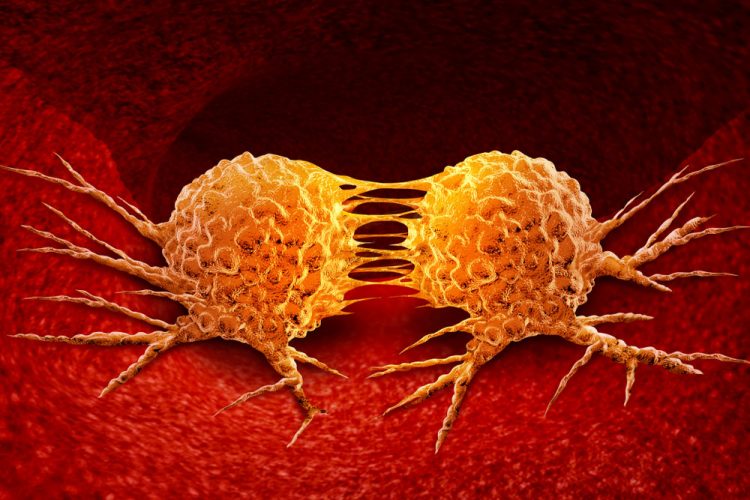Researchers uncover new target to stop cancer growth
Posted: 22 June 2018 | Drug Target Review | No comments yet
Researchers have discovered that a protein called Munc13-4 helps cancer cells secrete large numbers of exosomes that stimulate tumour progression…


Researchers have discovered that a protein called Munc13-4 helps cancer cells secrete large numbers of exosomes–tiny, membrane-bound packages containing proteins and RNAs that stimulate tumour progression. The study could lead to new therapies that stop tumour growth and metastasis by halting exosome production.
Cancer cells produce large numbers of exosomes, which contribute to tumour progression in many different ways. They can transfer cancer-causing oncogenes to neighbouring cells to increase their proliferation; they can contain proteins that reorganise the cancer cells’ surroundings and allow them to spread to other tissues, and they can contain signalling factors that disrupt the body’s ability to mount an immune response against the tumour.
A team led by Thomas F.J. Martin of the University of Wisconsin-Madison with Scott W. Messenger as the lead author found that calcium–which is often increased in cancer cells–stimulated the secretion of exosomes from aggressive breast cancer cells. Exosome release depended on a calcium-binding protein called Munc13-4; removing this protein, or replacing it with a mutant version unable to bind calcium, prevented breast cancer cells from releasing exosomes in response to calcium.
Munc13-4 levels are often elevated in human breast, pancreatic, and lung tumours. Martin and colleagues found that lung and pancreatic cancer cells increased their levels of Munc13-4 and released more exosomes as they became more aggressive.
Exosomes are formed inside large cellular organelles called multivesicular bodies. These organelles then fuse with the cell’s plasma membrane to release exosomes outside of the cell. Messenger et al. found that Munc13-4 works with another protein called Rab11 to promote the development of multivesicular bodies capable of fusing with the plasma membrane and releasing exosomes.
Exosomes released from cancer cells carry an enzyme called MT1-MMP, which degrades the extracellular matrix surrounding cancer cells. This helps the cancer cells disperse around the body to form secondary metastatic tumours.
When Martin and colleagues depleted Munc13-4, they reduced the release of MT1-MMP-containing exosomes from breast cancer cells and inhibited the cells’ ability to degrade the extracellular matrix.
“Overall, we think that increased expression of Munc13-4, combined with elevated calcium levels, drives enhanced exosome release by highly aggressive cancer cells and that Munc13-4 is a potential target for therapeutic intervention,” Martin says.
The study is published in the Journal of Cell Biology.
Related topics
Drug Targets, Oncology, Protein, Research & Development, RNAs
Related conditions
Cancer
Related organisations
University of Wisconsin-Madison
Related people
Scott W. Messenger, Thomas F.J. Martin


